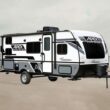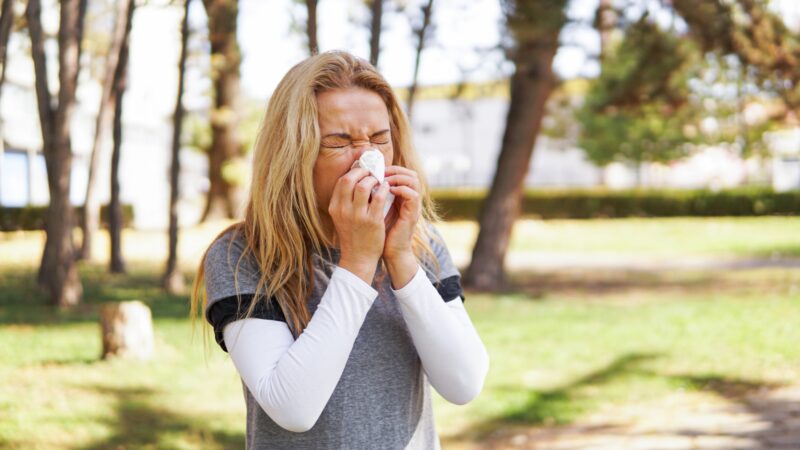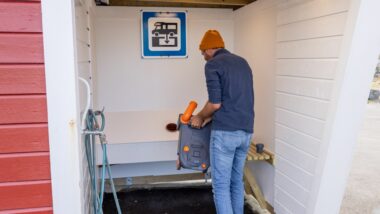Table of Contents Show
Some people’s immune systems are more sensitive than others and react to allergens in the air. This can make camping difficult for individuals with allergies.
Luckily, you can do several things to minimize the impacts of whatever is causing the reaction. Taking a proactive approach can allow you to breathe deeply without worries.
Today, we’re sharing some insights for anyone with allergies who wants to go camping.
Let’s go!
What Are Allergies?
Allergies are your immune system’s response to substances in the air. The most common allergens are pollen, dust mites, and pet dander. However, you can also react to foods, insect venom, and medications.
People’s bodies can have very different responses to allergic reactions. Typically, a mild case causes sneezing, a runny nose, watery eyes, rashes, or an upset stomach. Aside from a minor inconvenience and discomfort, it’s not typically the end of the world.
However, more severe situations can lead to anaphylaxis. When this occurs, you may experience difficulty breathing, swelling of your throat, and possibly a loss of consciousness. These can be dangerous and potentially even life-threatening. Seeking medical attention or calling 911 may be necessary.
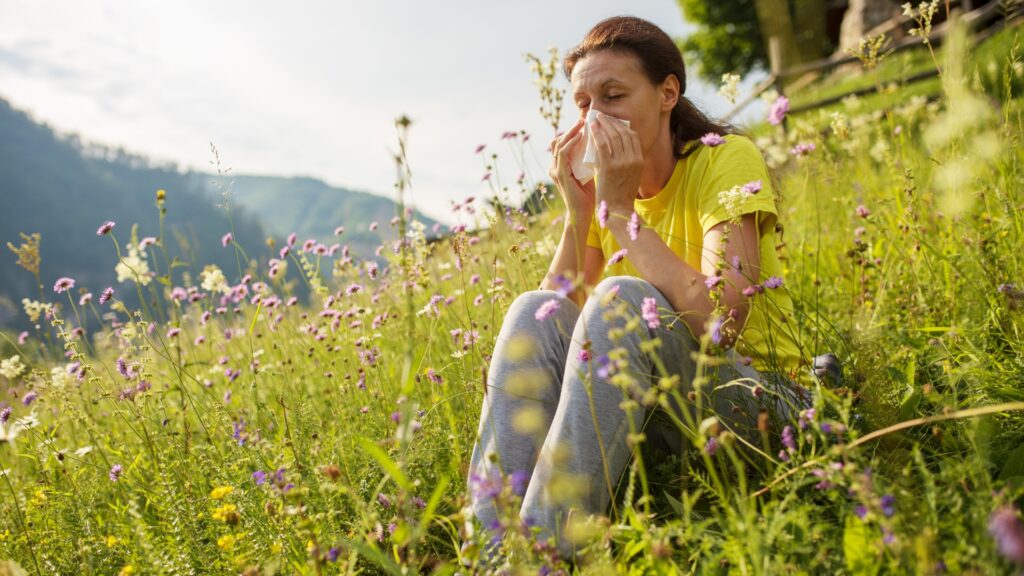
Is Camping Bad with Allergies?
Camping with allergies can pose a challenge, but it’s certainly possible. It significantly depends on the allergen and the severity of your reaction.
Unfortunately, because everyone responds differently, there’s no one-size-fits-all rule for these situations.
The key to a smooth camping trip with allergies is to know your triggers and how to manage reactions. If you can do this, it shouldn’t be a big deal. It may require you to take some precautionary measures or avoid camping in some locations.
Additionally, if you or someone in your group has severe allergies, they must communicate that with others.
This way, if a severe reaction were to occur, others in the group would know whether to call for help or to deliver medication through an epinephrine injection device.
Waiting until a reaction occurs isn’t the best time to instruct them on what to do.
Tips for Camping With Allergies
While camping with allergies may not be simple, it’s certainly possible. Taking the proper precautions can reduce your chances of them impacting your adventure.
Know Your Allergens
Knowing your allergens is the most basic and essential thing when camping. You need to know your enemy if you’re going to battle. You can take the proper precautions to minimize exposure and risks by pinpointing the threat.
Again, make sure you communicate the information to those around you. This can help ensure others in your group look out for you. If a reaction occurs, they’ll be better prepared to handle it.
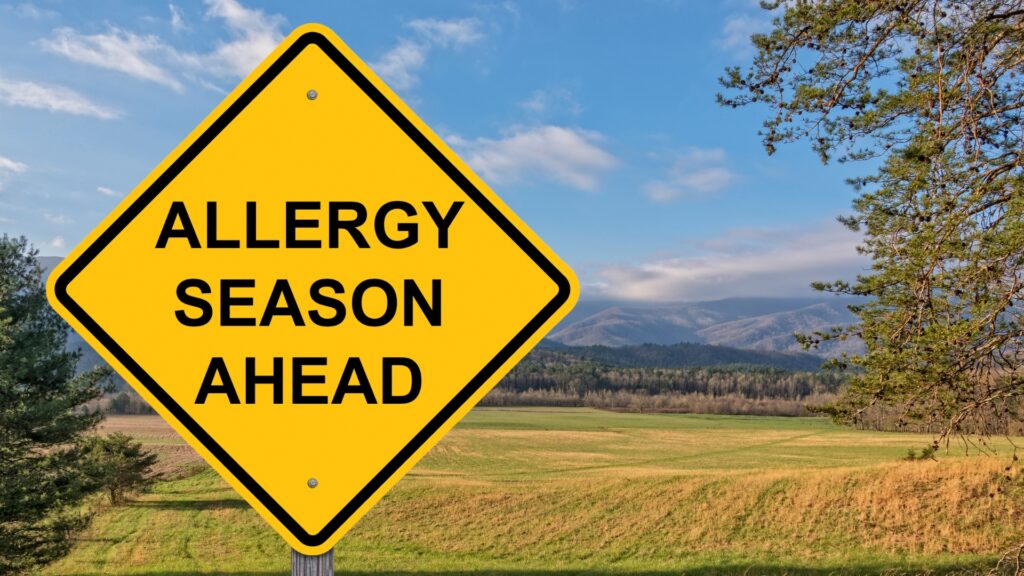
Choose Your Campsite Wisely
Depending on your allergy, your choice of campsite could be a significant decision. If you’re allergic to lilacs, getting a spot next to a large lilac bush isn’t a good idea.
Unfortunately, most campgrounds don’t post this information on their website.
If this is a serious concern, you’ll likely need to contact the campground before making a reservation. Discuss the situation with them and inquire about any potential issues.
They may volunteer to check the site and confirm that it will accommodate you and your situation.
Pro Tip: Allergies don’t have to be your only concern when picking a great site. Learn our tips for How to Pick the Best Site in a Campground!
Check the Weather Forecast
Mother Nature can majorly affect your ability to go camping with allergies. While rain and overcast days may not be great for camping, they’re fantastic for individuals with allergies. This type of weather typically experiences less pollen and other allergens.
On the other hand, sunny and windy days can be some of the worst days for camping with allergies. This can significantly increase the pollen in the air and your symptoms. In extreme cases, you may need to avoid camping during certain times of the year.
Use Allergy Medications
Sometimes, you don’t know when your allergies will flare up. As a result, it’s a good idea to always have allergy medications on hand.
We’ve found that Costco has the big three allergy medicines available in year-long doses. What’s even better, you can typically snag them for less than $20.
While you can get some over-the-counter antihistamines, you’ll need a prescription for more potent doses. These can provide quick relief and help you manage the sneezing, itching, and runny nose experienced in these situations.
Additionally, you’ll want to ensure you’re carrying an EpiPen for those with more severe allergies. You should know how to use it and teach anyone camping with you.
You want to know they know what they’re doing if you’re, for some reason, unconscious.

Pack Allergy Essentials
Not only do you need medicines, but also any specific supplies you’ll need. This could be tissues, hand sanitizer, or wet wipes. You want to ensure you’re keeping things clean, especially if you’re sneezing and coughing all over the place.
If you have a food allergy, you’ll want to pack camping foods you know will be safe. This can be useful, especially if the menu isn’t compatible with your diet.
Pro Tip: While stocking up on your allergy supplies, it’s always a good idea to ensure your RV emergency kit is ready to go, too!
Allergy-Proof Your Tent or RV
A tent in storage for some time can gather pollen, dust, and even mold. If these trigger a potential response from your immune system, set your tent up beforehand by wiping it down and cleaning it well. When finished, let it air out before packing it for your upcoming trip.
Additionally, consider investing in hypoallergenic bedding. This can include your pillows and mattress covers. These can help significantly in keeping dust mites and other allergens away.
Know the Nearest Medical Facilities
While you may not plan to use it, know where the nearest medical facility is. If you have a severe reaction and need to seek medical attention, you’ll be glad you know where to go.
If the risk of a severe reaction is high, it might be best to scout these out beforehand. Additionally, write down the numbers and addresses so you have them just in case.
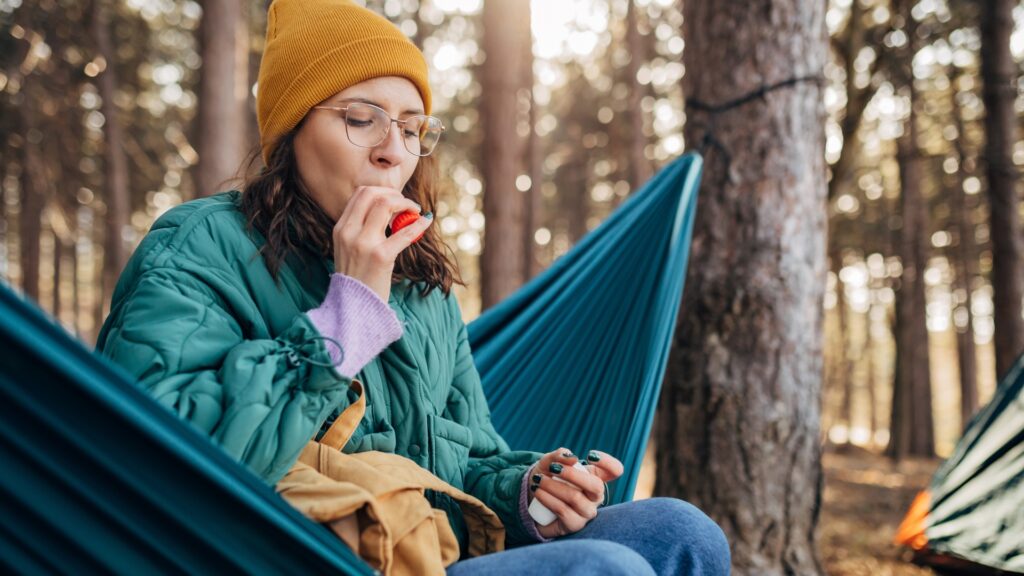
Should You Go Camping with Allergies?
For most people, dealing with allergies doesn’t mean avoiding camping. If you take the proper steps and do a little planning, you can have a remarkable time.
We’ve had allergies flare up a time or two during our travels. Thankfully, we had the right medicines to stop them from developing into serious situations. So, get out there and start exploring!
Do you have any other tips for avoiding allergic reactions while camping?


